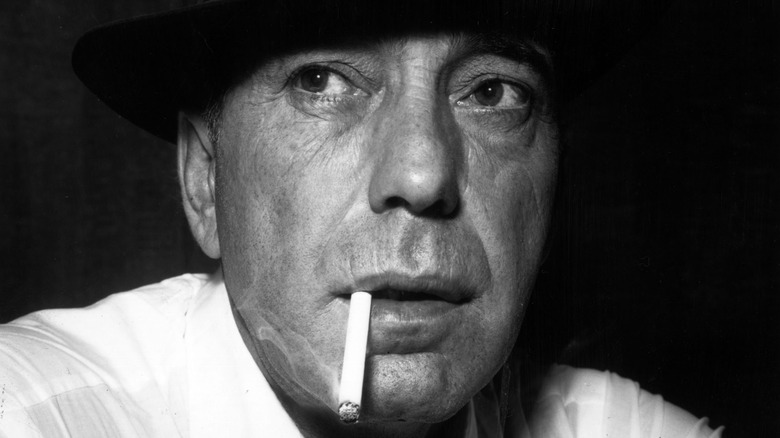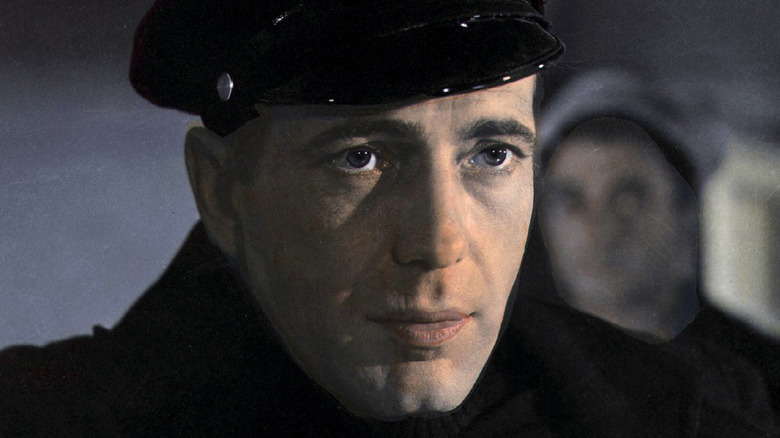Humphrey Bogart's Pre-Acting Hustle Became A Life-Long Passion
One of the greatest actors of his generation –- indeed, any generation -– was Humphrey Bogart, who melted hearts through the Silver Screen during Hollywood's Golden Age. He's also responsible for some of the most memorable lines in cinematic history, including the famed, "Here's lookin' at you, kid," from the 1942 classic, "Casablanca." As an icon, Bogart is known for the cigarette constantly hanging out of his mouth, which, according to Forbes, is where the term "bogarting" comes from. The term refers to keeping a cigarette in your mouth when speaking, or refusing to share a joint. And of course, no man wore a fedora better than Bogie.
Like a lot of actors, Bogie needed to find something to do when he was on set and not filming his scenes. So, he passed his time, at least some of it, playing a board game. What's more, he was devoted to this game for most of his life, and even made money at it before he hit it big as an actor.
Humphrey Bogart loved chess and was pretty good at it
Humphrey Bogart learned chess from his father, according to The New York Times. By the time he was a young man and was earning a wage, he'd developed a fondness for partying late into the night. Unfortunately, his wages didn't match his lifestyle, and so he was soon supplementing his income by playing chess for nickels and dimes against people at work — then later at New York City parks. During this period, he developed a reputation for being somewhat of a hustler.
Once he got big in films, Bogart kept up with his love for chess, often playing on set. Indeed, according to Chess.com, Bogart insisted on chess being included in the movie "Casablanca," with the pieces arranged in a position from one of his previous games. Off screen, he was involved with local and U.S. chess organizations.
How good of a player was he? By Chess.com's estimates, his ELO (a sort of snapshot of a player's chess skill; the higher the number, the better) was probably in the range of 2,000. That puts him in the "Expert" range, according to the United States Chess Federation, a step below "Master."

